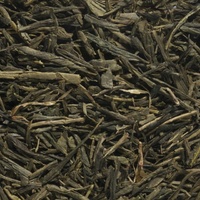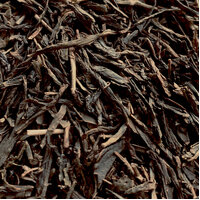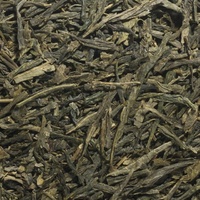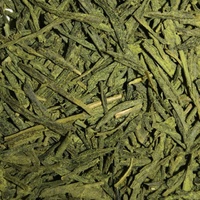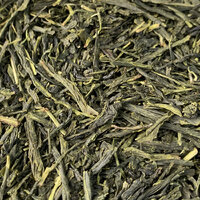Sencha Green Tea
Are you a tea fan looking for something to surprise your taste buds? Why not try a cup of organic sencha green tea and enjoy numerous health benefits?
Are you a tea fan looking for something to surprise your taste buds? Why not try a cup of organic sencha green tea and enjoy numerous health benefits?
Sencha tea is a type of green tea harvested from small-leaf Camellia sinensis (tea bushes). Some people call it Japanese green tea because of its main origin. This is the most popular tea in Japan, where green tea is the most popular beverage. It is also grown in China and South Korea. It is processed to retain much of the green colour and the flavours.
Japanese sencha green tea has a vegetal grassy flavour. This is because the leaves are steamed after picking, then rolled, shaped and finally dried. Other varieties have slightly different flavours from their processing. China sencha has nutty roasted flavours because it is pan-fried instead of steamed. These teas are mainly used in blending.
You can now Sencha tea buy online from the Tea Leaves Australia company, and get any orders above $75 delivered for free.
Although they are both green teas, there are differences in growing and processing matcha and sencha teas. Matcha is picked from the youngest two top leaves while sencha is harvested from the stem, shoot and two or three top leaves. This means you get a larger variety of minerals, amino acids and other micronutrients from sencha. Sometimes the two are blended to give sencha matcha green tea.
Sencha tea has trace amounts of caffeine, just enough to give a metabolic boost. This is 12-75 mg per cup of tea as compared to 125-280 mg in a cup of coffee.
Sencha should be prepared with water that has just started to simmer. The brewing time is short, steeping for 15-30 seconds. Steeping for longer gives a stronger flavour but more astringent because of the tannins. If you have to brew more than once, use hotter water.
Sencha tea that is kept in a tightly sealed container has a two year shelf life. However, you are advised to consume it within 2 weeks of opening the container.
Sencha is a Japanese word that translates to ‘simmering tea.’ This came from the technique of simmering whole tea leaves instead of the usual roasting and steeping methods used by the Chinese. This new technique prepared whole tea leaves by steaming them instead of pan-frying. Sencha tea has grown to be the most popular green tea in Japan, and Australia grown and produced sencha is becoming very popular.
Welcome to our website. If you continue to browse and use this website, you are agreeing to comply with and be bound by the following terms and conditions of use, which together with our privacy policy govern Tea Leaves AUST Pty Ltd’s relationship with you in relation to this website. If you disagree with any part of these terms and conditions, please do not use our website.
The term ‘Tea Leaves AUST Pty Ltd’ or ‘us’ or ‘we’ refers to the owner of the website whose registered office is 10 Jellico Drive, SCORESBY, VIC, 3179, AU. Our ABN is 58 114 649 099. The term ‘you’ refers to the user or viewer of our website.
The use of this website is subject to the following terms of use:
This privacy policy sets out how we use and protect any information that you give us when you use this website.
We are committed to ensuring that your privacy is protected. Should we ask you to provide certain information by which you can be identified when using this website, then you can be assured that it will only be used in accordance with this privacy statement.
We may change this policy from time to time by updating this page. You should check this page from time to time to ensure that you are happy with any changes.
We may collect the following information:
We require this information to understand your needs and provide you with a better service, and in particular for the following reasons:
A cookie is a small file which asks permission to be placed on your computer's hard drive. Once you agree, the file is added and the cookie helps analyse web traffic or lets you know when you visit a particular site. Cookies allow web applications to respond to you as an individual. The web application can tailor its operations to your needs, likes and dislikes by gathering and remembering information about your preferences.
We use traffic log cookies to identify which pages are being used. This helps us analyse data about webpage traffic and improve our website in order to tailor it to customer needs. We only use this information for statistical analysis purposes and then the data is removed from the system.
Overall, cookies help us provide you with a better website by enabling us to monitor which pages you find useful and which you do not. A cookie in no way gives us access to your computer or any information about you, other than the data you choose to share with us.
You can choose to accept or decline cookies. Most web browsers automatically accept cookies, but you can usually modify your browser setting to decline cookies if you prefer. This may prevent you from taking full advantage of the website.
Our website may contain links to other websites of interest. However, once you have used these links to leave our site, you should note that we do not have any control over that other website. Therefore, we cannot be responsible for the protection and privacy of any information which you provide whilst visiting such sites and such sites are not governed by this privacy statement. You should exercise caution and look at the privacy statement applicable to the website in question.
You may choose to restrict the collection or use of your personal information in the following ways:
We will not sell, distribute or lease your personal information to third parties unless we have your permission or are required by law to do so. We may use your personal information to send you promotional information about third parties which we think you may find interesting if you tell us that you wish this to happen.
If you believe that any information we are holding on you is incorrect or incomplete, please write to or email us as soon as possible at the above address. We will promptly correct any information found to be incorrect.

